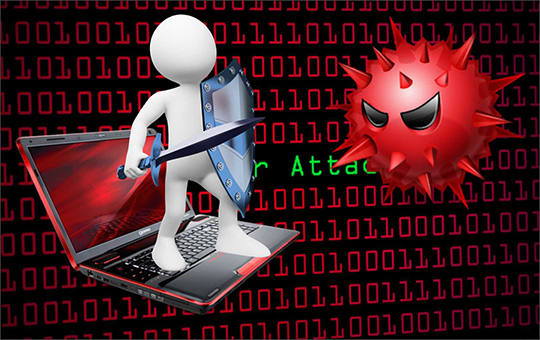
In today's digital age, our reliance on technology is greater than ever. With the increase in online activities such as shopping, banking, and socializing, the threat of cyber attacks has also become more prevalent. Malware, hackers, and various other cyber threats can compromise sensitive information and wreak havoc on both individuals and organizations. It's crucial for computer security companies to stay ahead of these threats and keep users safe.
The Role of Computer Security Companies
1. Identifying and Preventing Malware
- Computer security companies constantly monitor for new forms of malware, including viruses, worms, trojans, ransomware, and spyware.
- They develop and update antivirus software that can detect and remove malicious programs from devices.
- Real-time scanning and threat detection help prevent malware infections before they can cause damage.
2. Protecting Against Phishing Attacks
- Phishing attacks involve tricking users into revealing sensitive information such as login credentials and financial details.
- Security companies employ email filtering and URL blocking to prevent users from falling victim to phishing scams.
- Educational resources and awareness campaigns help users recognize and avoid phishing attempts.
Dealing with Data Breaches
1. Data Encryption
- Security companies utilize encryption techniques to protect data both in transit and at rest.
- End-to-end encryption ensures that only authorized users can access sensitive information.
- In the event of a data breach, encrypted data remains unreadable and unusable to unauthorized parties.
2. Incident Response Planning
- Computer security companies develop incident response plans to minimize the impact of data breaches.
- Timely detection and containment of breaches help prevent further damage and data loss.
- Forensic analysis is conducted to identify the cause of the breach and implement measures to prevent future incidents.
Defense Against Hackers
1. Network Security
- Firewalls and intrusion detection/prevention systems are deployed to secure networks against unauthorized access.
- Vulnerability assessments and penetration testing help identify and patch security weaknesses before hackers can exploit them.
- Network monitoring and anomaly detection allow for quick response to suspicious activities.
2. Multi-Factor Authentication
- Computer security companies promote the use of multi-factor authentication to add an extra layer of security to user accounts.
- By requiring multiple forms of verification, such as passwords, biometrics, or security tokens, the risk of unauthorized access is significantly reduced.
- Even if hackers manage to obtain login credentials, they would still need additional factors to gain access to sensitive data.
Continuous Monitoring and Updates
1. Software Patching
- Security companies regularly release updates and patches to fix software vulnerabilities that could be exploited by cyber attackers.
- Automatic updates ensure that users are protected against the latest threats without having to manually install patches.
- Prompt patching is essential to prevent security breaches and keep systems secure.
2. Threat Intelligence
- By analyzing threat intelligence sources, security companies stay informed about emerging cyber threats and attack trends.
- This information helps them develop countermeasures and updates to protect users from new and evolving threats.
- Sharing threat intelligence with other security organizations enhances collective defense against cyber attacks.
In conclusion, computer security companies play a vital role in safeguarding users against a wide range of cyber threats. By staying vigilant, proactive, and innovative, these companies help users navigate the digital landscape with confidence and peace of mind.